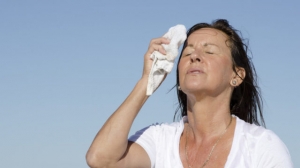The menstrual cycle during the hot season can cause real discomfort to a woman. Delays are possible, menstruation itself becomes more painful, not to mention the irritation caused by the use of sanitary pads in contact with the skin. Let's look at this in more detail.
What to expect?
Disorders associated with the menstrual cycle often worsen during hot weather, and the woman feels exhausted. The duration and intensity of discharge, the presence of pain are factors associated with the biological rhythm, which differ for each individual woman.
As mentioned above, during the warm season, the menstrual cycle undergoes changes. With the exception of specific causes such as PCOS , menopause, pregnancy or thyroid disease, which create an imbalance regardless of the time of year, there are purely external conditions that can change the menstrual cycle. These include: sudden changes in temperature; intense training; reduction in sleep duration; diets.
Does heat cause a delay in your menstrual cycle? Experts agree that there is no direct relationship between heat and menstruation, but there are a set of interrelated reasons that are more related to the emotional than to the physical sphere, as well as to lifestyle.
First of all, you need to remember about stress, which directly affects the menstrual cycle. Excessive production of cortisol, a stress hormone, interferes with ovulation and alters the regularity of the cycle. It should be remembered that menstruation does not necessarily have to appear within 28 days; the normal duration of the menstrual cycle is from 21 to 35 days.
Increased discharge and pain: why?
In the heat, the discharge becomes more abundant. This change is considered a completely normal consequence of the dilation of blood vessels due to heat, which increases the rate of menstrual flow. Be careful : if the bleeding is too severe, you need to contact a gynecologist at Bogolyuby MC to rule out concomitant pathological causes.
Women often complain of increased pain in the abdomen, pelvis, chest, and lower back associated with the menstrual cycle during the hot period. There is an explanation for this. As the temperature rises, we become more irritable because there is a hormonal decline in serotonin , melatonin, endorphins and dopamine, and this causes anxiety. Some hormonal fluctuations in testosterone and prolactin also influence pain.
Prolactin, a hormone secreted by the anterior pituitary gland, also experiences fluctuating levels caused by high temperatures and the long days of sunshine and light typical of the warm season. If the level of this hormone increases, an imbalance occurs that affects ovulation, which is reflected in the intensity and frequency of menstruation.
How can I help you?
What should be done to relieve unpleasant symptoms? Avoid eating foods that are too sweet, salty or fatty. Do not drink drinks containing caffeine, carbonated drinks, or alcohol. Avoid wearing tight-fitting or synthetic clothing. Do not smoke. Avoid prolonged exposure to the sun. Add foods rich in magnesium to your diet: cocoa, spinach, broccoli, potatoes, dried fruits, bananas, seeds, almonds, legumes.
Also pay attention to the effect of hydration on your cycle. It is recommended to increase the amount of water consumed. This will facilitate the outflow of fluid and eliminate swelling. Any water is good, but if possible, it would be ideal to choose water that is high in bicarbonates and calcium.



















